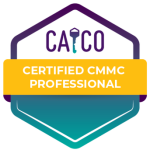Home » Manufacturing
Selecting the right IT partner can significantly advance your business and provide exceptional support.

Manufacturers in 2025 face a rapidly evolving landscape of digital transformation, cybersecurity threats, and stringent regulatory oversight. Managed Service Providers (MSPs) play a crucial role in helping manufacturers maintain operational efficiency, secure their digital infrastructure, and comply with a complex web of federal compliance requirements.
We outline the core services we offer to the manufacturing sector and detail the key compliance areas that must be addressed.



As your dedicated IT Partner, we will work with you to manage your IT network.
To ensure the safety of your business, we will collaborate with you to install and configure our comprehensive suite of cybersecurity services.
We take data backup and disaster recovery very seriously. We ensure the right type of data backup to meet your business needs.



As your dedicated team of IT professionals, you will have access to our three-tiered support system, which includes in-house and remote assistance, as well as our field service team and server engineers.
Effective management of cloud and SaaS is crucial for businesses aiming to optimize their operations. Maintaining oversight, tracking usage, and ensuring data integrity are vital aspects of this management.
Compliance management is crucial for businesses to ensure adherence to legal, regulatory, and industry standards. The right IT partner can streamline this process.
The purpose of NIST 800-171 is to protect the confidentiality of Controlled Unclassified Information (CUI) in non-federal systems and organizations, particularly for those organizations that work with or partner with government entities.
There are a total of 17 control families in the framework. They are briefly described below.
The purpose of the Cybersecurity Maturity Model Certification (CMMC) 2.0 is to ensure Defense Industrial Base (DIB) contractors protect Controlled Unclassified Information (CUI) and Federal Contract Information (FCI) through a tiered cybersecurity maturity level.
There are three levels of requirements in the CMMC 2.0 structure. They are briefly described below.
Level 1: Foundational
Level 2: Advanced
Level 3: Expert
We have certified CMMC professional technicians on staff.

A compliance framework is essential for meeting regulatory requirements and avoiding costly penalties and fines. A framework helps organizations maintain their reputation and client trust while also improving their overall efficiency and effectiveness by streamlining processes, reducing costs, and enhancing accountability and transparency. Maintaining a framework can be difficult, including documenting and implementing organizational processes and procedures that need to be maintained to ensure organizations adhere to internal rules and external regulations. That’s why businesses need our Compliance Manager. TAB has Certified CMMC Professionals on staff to assist you with this process.

